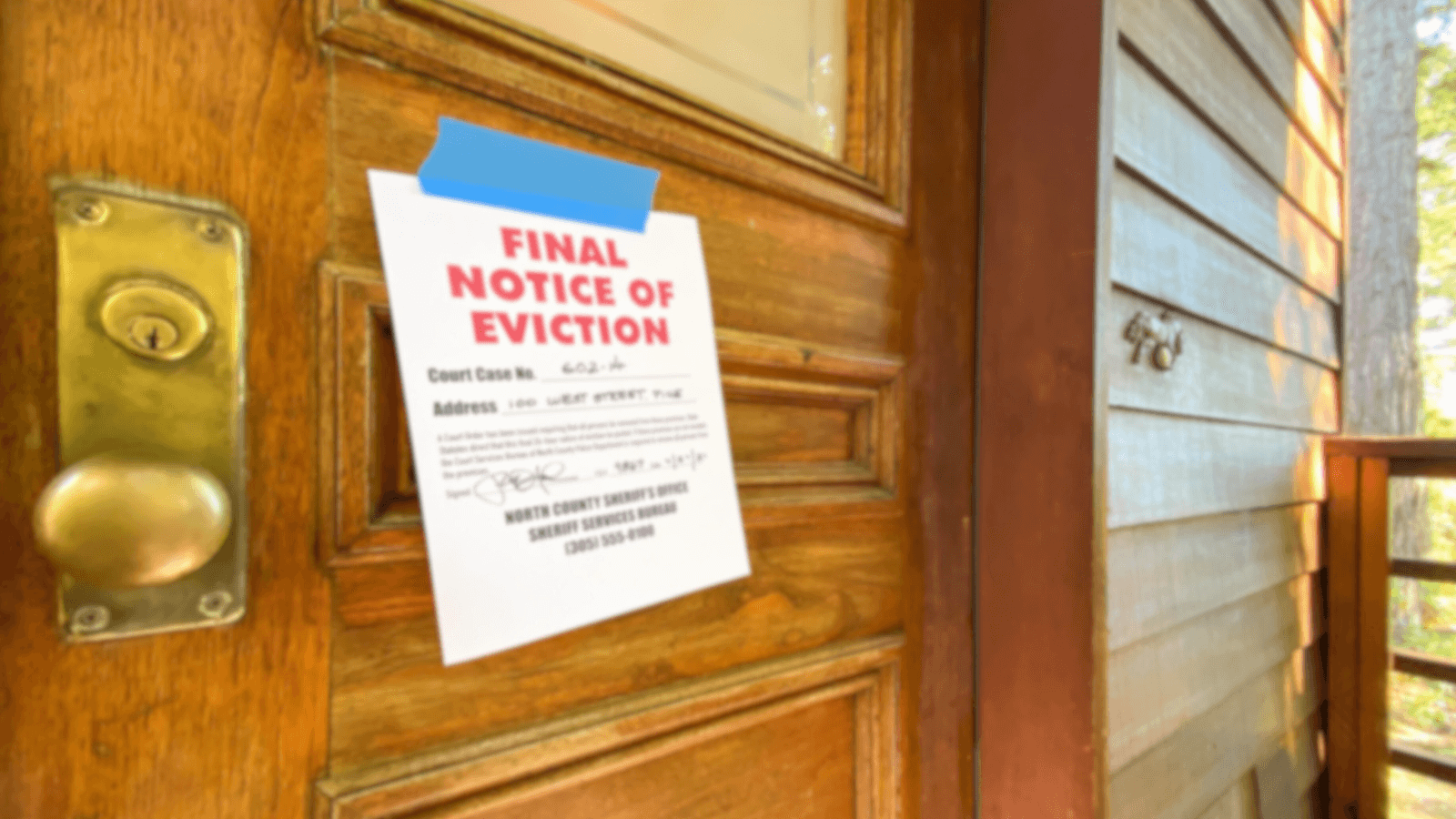The state of North Carolina does not allow a landlord to evict a tenant without good cause. However, a question that clients often have is what can be considered “good cause” for eviction. While this blog should not be taken as legal advice by either tenants or landlords, let us give you a general overview of evictable situations in North Carolina.
Evictions in North Carolina
In North Carolina the legal term for an eviction is a Summary Ejection. When starting the eviction process, a landlord must serve the tenant with a summary ejection notice, warning them that they are at risk of being evicted and the reason for the eviction.
Situations that could warrant eviction
In the state of North Carolina, there are four primary situations that might spur a landlord to evict a tenant:
- Non-payment of rent
- Breach of a lease agreement
- Criminal activity on the property
- End of a lease agreement
Non-payment of rent
The most common reason for a summary ejection is a tenant’s failure to pay their rent on time or failure to pay their rent at all. There is no grace period for rent in North Carolina, so it is considered past due one day after its due date.
North Carolina allows landlords to serve an eviction notice for failure to pay rent either in written form or verbally. The eviction notice must include a notice period of ten days, during which the tenant can either pay their rent in full or move out of the property to avoid being evicted. If the tenant has not paid or moved out of the property after the ten-day notice period, the landlord can then file for an eviction action to have the tenant removed.
Breach of a lease agreement
A lease agreement serves as a contract between the tenant(s) and landlord that outlines the responsibilities of each party while the tenant lives at the property, and both parties must uphold their end of the agreement for the entire duration of the lease. If a tenant breaks any stipulations in their lease, the landlord is within their rights to evict them, and they are not required to give the tenant a warning notice beforehand. These breaches can include having more people living at the property than agreed upon on the lease, causing damage to any part of the property, smoking in non-smoking areas, or having pets when not allowed by the lease agreement.
The landlord can allow the tenant a period of time to rectify the breach of the lease agreement if they choose to, which is usually stipulated ahead of time in the least agreement, but this is not required by law in North Carolina.
Criminal activity on the property
This is kind of a no-brainer, but if a tenant engages in illegal activities on the premises of a rental property, the landlord reserves the right to evict them from the property. North Carolina state law does not require landlords to serve tenants with a notice before eviction proceedings as long as there is substantial evidence of the illegal activity. Evictable illegal acts cannot be trivia and must involve the property. Possible activities that warrant eviction include manufacturing, consuming, or selling drugs on the premises or human trafficking.
End of a lease agreement
The lease agreement will include the timeframe that the lease lasts for. Once that period is over, a tenant must either move out of the property or renew their lease. If a tenant remains living in a property beyond the end of their lease term without applying for a lease renewal and refuses to leave, they become considered a holdover tenant, and the landlord can file for a summary ejection.
Turn to Starling Law Firm for guidance
The eviction process is not a fun time for anyone. Whether you’re a tenant who’s being evicted, or a landlord who needs to evict a tenant, navigating the eviction process can be tricky and confusing. Your best bet is always to have a knowledgeable, experienced attorney on your side. The attorneys at Starling Law Firm can guide you through a summary ejection and help assure that your rights as a tenant or landlord are upheld and respected. Contact our office to set up a consultation with an attorney today.

